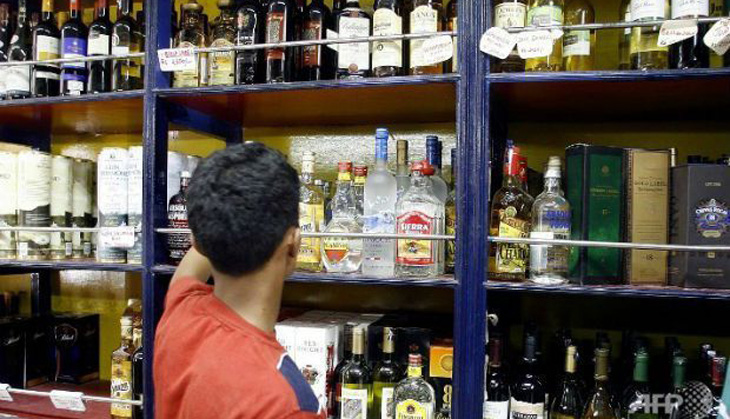Highway booze ban: Uttarakhand stares at cash crunch, relocation woes
The newly elected BJP government in Uttarakhand is finding it hard to come to terms with the recent Supreme Court judgement banning liquor vends within 500 meters on national and state highways.
While the locals, particularly women, have hit the streets fiercely opposing the government's decision to relocate these vends to densely populated areas, the government is worried about the revenue losses that have been pegged at around Rs1,200 crore.
According to state Finance and Excise Minister Prakash Pant, close to 80% liquor vends and bars have been shut in the state after the Supreme Court's order. As a result, the excise department is bracing up for a loss of more than 40% during the current financial year since these vends contribute to nearly 80% of the total revenue of the state's excise department.
Out of the 532 vends selling both country and foreign liquor in the state, nearly 402 such vends are on the national and state highways in the state.
As a result of the apex court's order, many such vends have not even renewed their licences and out of the 532 only 202 have paid the fees to renew their licences.
The government had extended the previous government's excise policy for a month after which a new policy is likely to come in place. The liquor licences of these shops expired on 31 March and the shop owners were asked to renew their licences for a month till the new policy comes into effect. However, the response has not been very encouraging forcing the state government to look for ways to bypass the court's order.
In the footsteps of...
To avoid revenue losses of such massive amounts, especially for a small state like Uttarakhand, the state government is planning to bring in a resolution in the cabinet to declare state highways as district roads.
The Uttarakhand government has taken a page from the Uttar Pradesh model wherein the state highways passing through cities were declared district roads while the city bypasses were being notified as state highways. Several other states facing severe revenue losses are planning to use the same policy to circumvent the apex court's order.
Also read: How highways will be the next casualty of SC's liquor ban
However, Uttarakhand has a higher number of national highways as compared to state highways and it remains to be seen how many liquor vends can the government save.
Moreover, the state government is planning to approach the apex court on the issues of five-star hotels and bars on national highways since most such establishments in the state are on national highways.
Matter of location
The government's decision to relocate the vends from highways to populated areas is facing a lot of backlash from the locals, especially women, who don't want more liquor shops in densely populated neighbourhoods.
In rural areas, the women have destroyed excise department offices and the makeshift liquor shops which have contributed to shop owners not renewing their licences.
Places like Haridwar, Agustmuni, Pauri, Dehradun, Ukhimath, Gopeshwar, Roorkee, among other areas are witnessing violent protests from women.
As a result, many shop owners who were planning to shift their shops have not been able to do so. Twenty eight shops could not be relocated in Dehradun while in Haridwar 36 of the 69 shops could not even open.
Kamala Pant, one of the founders of Uttarakhand Mahila Manch (UMM), told Catch that thousands of women are dead against the decision to relocate the shops.
“Liquor shops should be far away from cities and towns. If the ones on the highways are shifted to populated areas, women would be the worse sufferers as drunkards do tend to misbehave with them. If crime rate increases, it directly affects women and that is the reason why we are insisting on shutting these shops permanently if there is no other way,” Pant pointed.
Prohibition question
Pant further added that UMM, for years, has been campaigning for a complete prohibition of liquor in the state. When questioned about the losses in revenue if liquor is banned, she said, “Uttarakhand can earn revenue from so many other sources. We had earlier told the government that don't give us development, instead use that money to fill up our coffers. Women of Uttarakhand suffer a lot because of the high liquor consumption.”
In fact, similar sentiments were echoed by the new chief minister, Trivendra Singh Rawat, who claimed that his government wants to end the state's dependence on liquor sales for revenue.
Rawat, however, went on to add that he is not pro a complete ban on liquor sales as other states that tried complete prohibition has not seen positive results.
- Deporting refugees: Persecuted Rohingyas run out of luck in India
- The Dalai Lama: It is in India's interest to engage him more
- Hinduism vs Hindutva: Trinamool to perform Hanuman Puja to take on Sangh Parivar
- How highways will be the next casualty of SC's liquor ban
- No fellowship money, but JNU declared second best university

